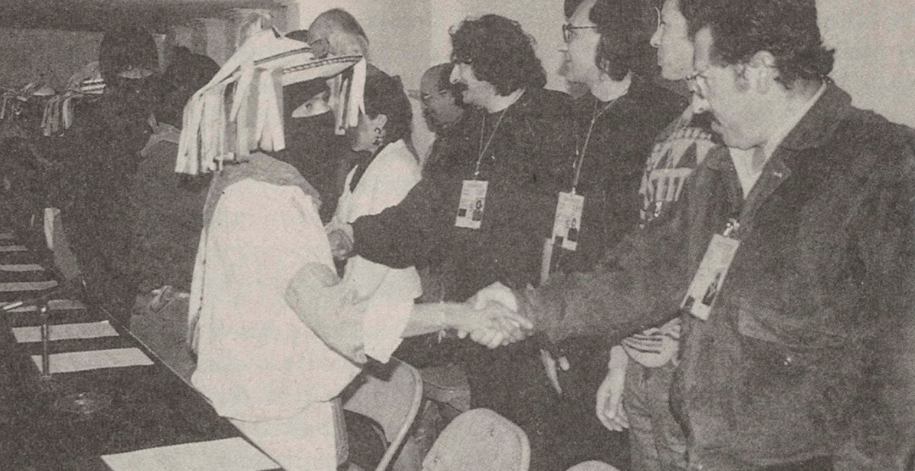Magdalena Gómez

At the time of the suspended dialogue between the federal government and the Zapatista Army of National Liberation (EZLN) it was claimed that a new relationship would be built between the State and the indigenous peoples. The farewell ceremony began in September 1996, when EZLN declared the suspension of the dialogue due to a crisis in what was to be the second round table on democracy and justice. It has been 27 years since that event, which was not announced as a rupture, since the Law for Dialogue, Reconciliation and Dignified Peace in Chiapas of 1995, established that while the dialogue is maintained, the State will not exercise persecutory actions for the armed uprising of the EZLN on January 1, 1994. This law, still in effect by the way, did not establish sanctions against the State in case of non-compliance with the agreements signed on February 16, 1996, those of San Andres on indigenous law and culture resulting from the first roundtable, which ultimately was the only roundtable. It is not possible to extend this anniversary, since it is already well known that successive governments since then have waged war by other means, as the classic would say. Including the indigenous counter-reform of 2001, which in Fox’s time, along with allied parties, tried to declare the San Andres Accords fulfilled. With that, it put an end to the political will expressed by the EZLN to resume the dialogue if the conditions they set, among them the constitutional reform in accordance with the referred agreements, were fulfilled.
From 2001 to this date, the State has not risked its word in this regard. The aforementioned farewell has been endorsed in times of the so-called 4T and it must be recognized that the President of the Republic has not offered anything in this respect, despite the initial expressions of the current head of the National Institute of Indigenous Peoples (INPI) that had to be omitted. He did put together a strategy of indigenous consultation forums with which they supported a proposal for a new constitutional reform, although it never came to life as an initiative, they recently organized a campaign with indigenous people and academics involved in this process, demanding that the President keep his word, which he did not do even with the Yaquis, when they publicly handed him the document containing the proposal. The campaign was silenced like the mariachis when one of the deputies of the Commission of Indigenous Affairs publicly affirmed that there were no conditions for such demand. Its proponents have remained silent.
This brief recounting of the farewell serves to remind us that the National Indigenous Congress has pointed out that the peoples do not define their struggles by sexennia and, nonetheless, we can already guess the hackneyed discourse on the subject, since at the end of the day its members represent potential votes. We already have two pearls voiced by the two women who will be on the ballot for next year’s presidential election.
The newly elected Claudia Sheinbaum as national coordinator of the Committees for the Defense of the Fourth Transformation, a prelude to Morena’s candidacy for the Presidency of the Republic in 2024. Even while campaigning, sorry, in an informational assembly in San Cristóbal de las Casas, Chiapas, on August 13 she declared: “I will never fail you, I will always be close to the heart of the indigenous peoples, after receiving from indigenous women present the baton of authority and traditional dress ceremony. She highlighted, among the advances of the 4T, the construction of historic works, such as the Mayan Train and reiterated: It is a historic moment for the country, in addition justice is being done for the indigenous peoples which is something that must not stop and must continue, which represents recovering land, territory. Water. It means the wellbeing of the peoples. It means support for the indigenous peoples, but not from the top down, but in a dialogue between the peoples and their authorities.”
I would like to know her data to support this discourse because I have other data. Days later, on September 2, Xóchitl Gálvez, elected by the Frente Amplio por México, also in San Cristóbal stated, I confess that to my astonishment: I will comply with the San Andres agreements. She acknowledged that they are still pending and criticized the incapacity of the current government to promote a constitutional reform. She is informed, no doubt, but she does not recognize the many failures of the Fox government in which she participated. And she outlined her plan that, in addition to economic support, there will be infrastructure development and ecotourism projects and equitable access to education. It is difficult for both speeches to be transformed even when they come from women, and assuming that the axis of the peoples is autonomy and self-determination; even worse: they do not sympathize with the violence that is being suffered throughout the country, especially in Guerrero and Chiapas. True, it is too much to ask. They are just campaigning.
Original article published in La Jornada on September 12, 2023. https://www.jornada.com.mx/2023/09/12/opinion/022a2pol
English translation by Schools for Chiapas.
